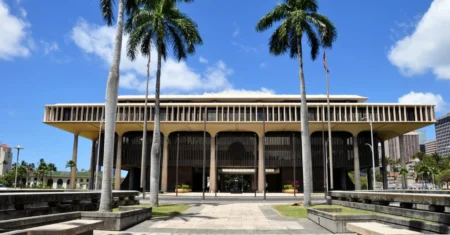U.S. President Donald Trump said he may extend the June 19 deadline for ByteDance, the Chinese company that owns TikTok, to sell its U.S. operations. Trump said TikTok helped him win support from young voters during the 2024 election and suggested the app will be protected.
Trump made these remarks in an interview aired Sunday on NBC’s Meet the Press with Kristen Welker. The interview was recorded at his Mar-a-Lago resort in Palm Beach, Florida.
Trump praises TikTok’s influence on youth voters
TikTok, the popular video app with over 170 million users in the U.S., has been at the center of political debate over national security concerns and foreign ownership. Trump said he has a “sweet spot” for the app because it helped him connect with younger Americans during his successful 2024 campaign.
“TikTok is very interesting,” Trump said. “But it will be protected.”
This is not the first time Trump has stepped in. After returning to office on January 20, 2025, he chose not to enforce the original ban set to take effect on January 19. He first extended the deadline to early April and then again to June 19.
Background: TikTok’s legal trouble in the U.S.
TikTok has faced pressure in Washington over concerns that its Chinese ownership could allow user data to be shared with the Chinese government. In 2023, Congress passed a law requiring ByteDance to sell its U.S. assets or face a ban.
The law stated TikTok would need to cease U.S. operations by January 19, 2025, unless the company completed a sale to a U.S.-approved buyer.
A deal had been in progress to spin off TikTok’s U.S. business into a new American-owned company. However, that process was halted when China refused to approve the sale, especially after Trump announced new tariffs on Chinese goods.
China and tariffs: The sticking point
In the same interview, Trump said that China was eager to make a deal but blamed rising U.S. tariffs for delays. In April, Trump imposed 145% tariffs on Chinese imports, leading to tension between Washington and Beijing.
“China wants to do business very much,” Trump said. “At some point, I’m going to lower them [tariffs], because otherwise you could never do business with them.”
He added that the high tariffs were having a strong impact on China’s economy but insisted he would not remove them just to get a TikTok deal done.
Legal concerns over Trump’s authority
Not everyone agrees that Trump has the power to keep extending the deadline. Democratic senators have argued that the law clearly outlines when TikTok must be sold and that the president has no legal authority to delay enforcement beyond what Congress allowed.
They also question whether the earlier proposed deal — placing TikTok’s U.S. operations in American hands — meets legal standards for full divestiture.
Despite the legal debate, a source close to ByteDance’s U.S. investors said that discussions are still ongoing. The final decision may depend on whether the U.S. and China can resolve their trade disputes before the June 19 deadline.
ByteDance’s challenge: balancing both sides
ByteDance is caught in the middle of a global standoff. The company has tried to avoid being banned while also pleasing Chinese regulators, who have pushed back against forced sales of technology assets to foreign firms.
In 2020 and 2023, similar efforts to sell TikTok’s U.S. arm failed for the same reasons — regulatory roadblocks in both countries.
A new structure under review would let U.S. investors take majority ownership, with daily operations based in the United States. But without China’s approval, the deal may be blocked again.
What’s next for TikTok?
With only weeks left until the new deadline, TikTok’s future in the U.S. remains uncertain. If no sale is completed by June 19, and if Trump decides not to extend the deadline again, the app could face removal from app stores and a ban on providing internet services to it within the U.S.
TikTok has not released a public statement about the interview or the ongoing deal talks. ByteDance also declined to comment.
Still, for now, the app continues to operate normally, with millions of users sharing videos, trends, and political content every day.







